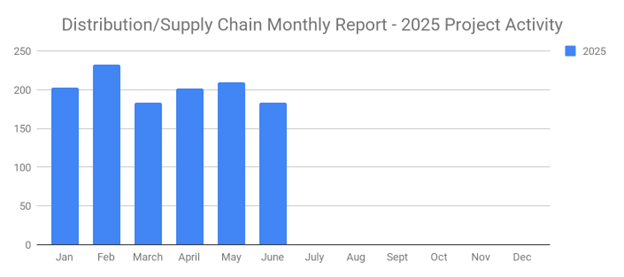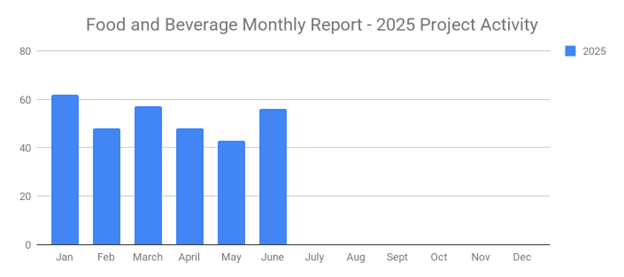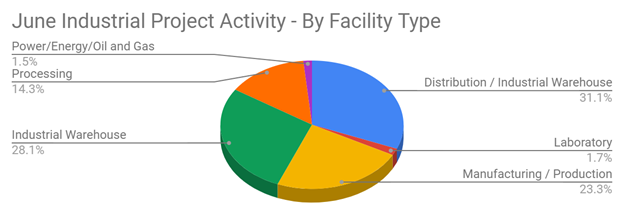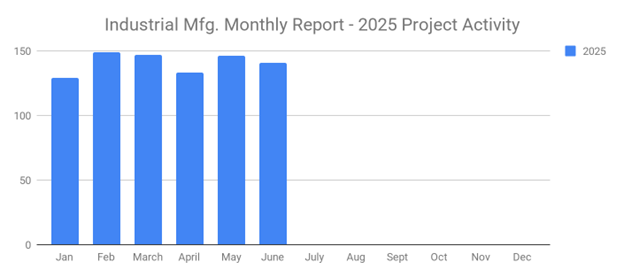
Many industrial sales reps make the mistake of immediately calling sales leads after securing their information, believing it offers the greatest chance of generating a sale. Generally speaking, the sooner you make initial contact with a lead, the better. If you wait too long, the sales lead may purchase products or services from one of your industrial competitors. With that said, you should still take the time to research sales leads before calling them. By following these tips, you'll gain a better understanding of the unique needs of your industrial company's leads, which you can use to customize your sales call.
#1) Visit Their Business's Website
Prior to calling a sales lead, visit his or her business's official website. Research shows over half of all medium- and large-sized businesses have a website. While businesses use different designs and layouts for their website, they often include information about their employees. If you've recently secured an industrial sales lead, you should check his or her business's website to see if it contains additional insight.
#2) Look on LinkedIn
You can learn a lot about industrial sales leads by visiting LinkedIn. While leads may have other social media profiles, none are more valuable -- from an industrial sales rep's perspective at least -- than LinkedIn. LinkedIn is designed exclusively for business professionals. Therefore, they contain a plethora of valuable information about their history, posts of interest, topics important to them and much more. Just head over to LinkedIn and search for either the sales lead's name or his or her business's name to get started.
#3) Perform a Google Search
Along with LinkedIn, you can use Google to research sales leads before a sales call. Even if a lead doesn't have a LinkedIn profile, he or she may have profiles on other websites. Searching for the lead's name on Google can then point you in the right direction to these profiles, which you can use to learn more about the lead. Just remember to place the lead's name in quotation marks, such as "John Doe," when performing the search.
#4) Check for Financial Statement
If a lead works for a publicly traded company, you can check for financial statements. In the United States, all publicly traded companies are required to release financial statements showing their profits and losses. These statements are available to access from the Securities and Exchange Commission (SEC). Once you've obtained a lead's financial statements, you can review them to learn more about his or her needs. If a lead's business is struggling financially, for instance, you might be able to offer a low-cost solution to improve their financial situation.
#5) Read Customer Reviews
Another way to research leads before a sales call is to read some of their customer reviews. Regardless of what a sales lead's business sells, customers will probably leave reviews for them. You can find customer reviews published on official business websites, social media profiles and even Google. By going through these customer reviews, you'll learn more about the sales lead's business. Maybe customers aren't satisfied with a particular element of the business's operations, or perhaps they've expressed concern over the quality of the business's products. Regardless, reading customer reviews can reveal this and other relevant information about the lead's business, all of which you can use to customize your sales call.
#6) Cross-Reference With Existing Leads
Before calling a lead, cross-reference his or her information with that of other leads secured by your industrial company. In other words, you should check to see if any of your company's existing sales leads have the same or similar information as the new lead. It's not uncommon for B2B companies to secure the same lead twice. With duplicate leads such as this, you may end up calling the same prospective buyer whom you've already spoken to.
#7) Create a Google Alerts
Google Alerts is a free-to-use tool that, among other things, can help you research leads before a sales call. Google Alerts lives up to namesake by "alerting" you when a website published content containing your desired keyword. How can you use it to research leads exactly? Well, you can create a Google Alerts for a sales lead's name. Once created, Google will constantly scour the internet while looking for the recently published content about the lead. If another website publishes an article, press release, blog post or any other content containing the lead's name, you'll be notified.
#8) Check Glassdoor
Check Glassdoor to learn more about leads before a sales call. Glassdoor is technically a review website, but it's not your typical review site. Rather, it consists entirely of employee reviews. Employees who work alongside the sales lead may visit Glassdoor to leave a review for their business. Therefore, these reviews provide direct insight into the operations of a lead's business.
#9) Research on SalesLeads Inc.
Save the best for last. If you need to research a company. be sure to use SalesLeads' Platform. There are a few ways you can check.
1. Look at previously released Project Reports. Have they had projects in the past? You can find of what they were, when did they occur and who were those involved.
2. News Alert Tool. This is a very useful tool. You certainly don't want all kinds of news or irrelevant news filling up your inbox, so check the news that best represents the type of information you're searching for. Now you have relevant information to talk from.
3. Look the contact name or company name up in our Target Account Sales Intelligence. It'll give you background information on the company along with pertinent information such as email address, phone number and any titles.
Take a look and see what you think.
What to learn more? Get in Touch
Latest Posts
-

June's New Distribution and Supply Chain Planned Projects Return to March’s 183 Confirmed Figure
-

Food and Beverage Rebounds with 56 New Planned Projects Igniting Growth After Decline
-

June 2025’s New Industrial Construction Projects Grew 7% Month-Over-Month
-

Q2 Industrial Manufacturing Soars 31% for Planned Projects Over $100M; June Planned Industrial Projects Hit 141

